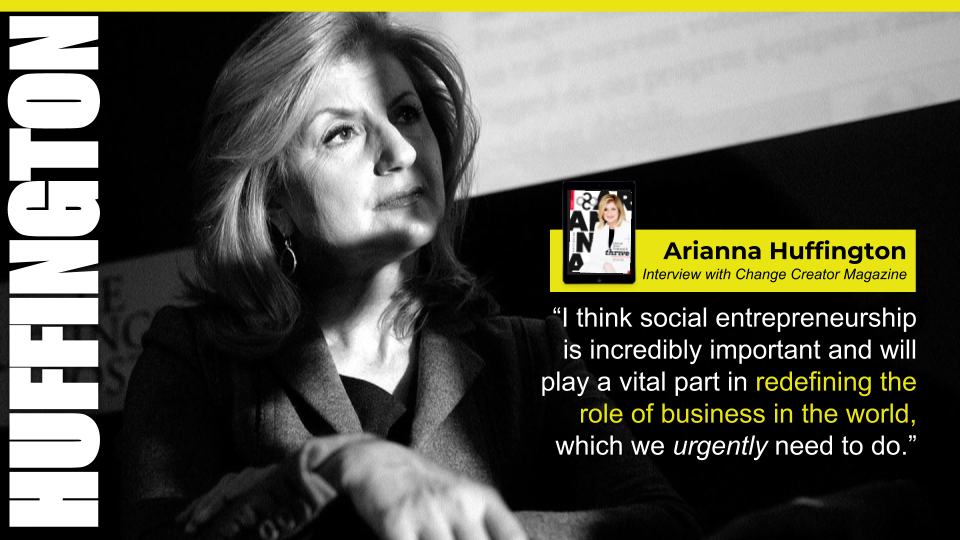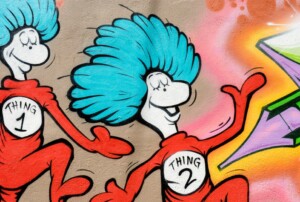

Only 48% of millennials and Gen Z believe that corporations actually behave ethically. This is a significant number because, for the first time in many years, the majority of young people don’t believe that business is a source of good.
They have lost faith in corporations and, let’s face it, in governments to do what’s morally or ethically right. With so many social and global issues facing our world right now, why aren’t more businesses and corporations driving social change?
And, if they are — why don’t we know more about that? With so many social problems around the world, why isn’t business doing more to have a positive impact? And for the businesses that are doing more — why don’t we hear more about them?
The majority of this generation and the younger generations do believe that businesses should be a driver to social change.
There are a lot of businesses doing some serious good in the world. We’ve interviewed many of them!
Where is the disconnect?
Today, businesses are not telling the story of their social impact in a way that connects to their audience. Yes, of course, there are some brands that are killing it when it comes to social impact — Salesforce, Ben and Jerry’s, Costco, just to name a few, but for the most part, social impact is thought of as a campaign idea, not the story that lives and resides within a company.

Although we are inundated with messaging every, single, day — corporations and businesses are not doing a good job at telling their brand stories. Especially when it comes to the story of impact and social good.
We have to do better.
We cannot wait for the big corporations to do good and tell us about it. We have to make social change possible in our own lives and businesses.
Storytelling is the best marketing effort a brand can do. And, if your story is social impact, you must tell that story with all the fervor and excitement this world deserves.
Storytelling vs Marketing
We are constantly bombarded today with marketing. Ads on Facebook, in Messenger, remarketing, pop-ups, click-bait — the whole nine.
Most of us have become quite savvy on when we are getting ‘sold something’, what brands fail to realize today is that this is not the way to build brand equity, an audience, a following or customers.
Maybe brands should spend more time building relationships instead of interrupting our day telling us how great they are all the time.
That’s where storytelling comes in.
Before we get into the nitty gritty of crafting your brand story, I want to share this quote from our good friend Seth Godin (issue 16 of Change Creator cover story).

What is brand storytelling?
First, let’s talk a little about what storytelling is NOT. I think when most people hear about ‘brand story’, they automatically assume that this is a story that is crafted, created, invented even. A compelling brand story is not fiction. It lives in the very real.
Here are some things that brand storytelling is NOT:
It is not fiction.
- “Storytelling is not inventing a story. In fact, the very reason why your business exists, why you have developed products and services and why you do what you do is filled with stories.” (Source: https://www.i-scoop.eu/using-storytelling-strengthen-brand/)
It is not a one-time campaign or promotion.
- “Storytelling is not a one-off exercise but a matter of consistency and adapting to evolving human needs, although sometimes specific actions and initiatives can seem to have that one-off dimension. (Source: https://www.i-scoop.eu/using-storytelling-strengthen-brand/)
Something that only exists in the minds of upper management or the marketing team.
- Something that exists in a bubble or stays in internal documents and upper management. The brand story should live amongst employees and customers.
What do I mean when I talk about your ‘brand story’…
Think about when you first started your business.
What was the problem you were trying to solve? Do you still think about that problem every day or have you been too busy trying to convince others of how great you are?
When I coach brands on how to develop their brand story and how to tell their brand story, they always want to jump ahead in the process.
Many brands forget about the problem they are solving. What problem are you solving? That should be a simple answer. I don’t need to hear about the many benefits of your brand, how great your product is, how valuable it is, the market size — none of that.
When we start to think about ‘brand story’ — I start with the most important factor in your business — What problem are you solving?
But first, a short exercise.
Before we continue in this blog. Let’s stop and think about our businesses.
Jot down the problem you solve in your business.
Now stop there.
Before you craft your brand story, you must be able to clearly identify the problem you are solving — NOT how you are solving it, or the best attributes of your brand, but really, down to the nitty-gritty, what’s the problem?
If you can figure this out, you are one step closer to crafting a brand story that resonates with your audience.

What is the secret to telling a great brand story?
Well, there is no secret really but there are things that every brand needs to do when telling their story. For me and my clients, I really focus on authenticity. Even online, or in a digital platform such as email marketing, authenticity is key to building trust with your customers.
Gone are those old ‘advertising’ days when you just plopped your brand on the television set and told everyone how they had to have you.
Today’s audiences are not only savvier, they are cynical. We can smell a fake ad a mile away, can’t we.
Audiences today are also everywhere. We can find someone to listen to our brand story in a myriad of places. From social media to youtube videos, audiences are connected to brands in more intimate ways.
Let’s break it down, shall we?
At the core of telling a great brand, story is the truth.
The 4 Factors that make a great brand story — Is it T.R.U.E.?
Timely
Relevant
Useful
Entertaining
I would like to add — E — Emotional.

Storytelling is so Vital to Purpose-Driven Brands
Now, I started this blog talking about how vital brand storytelling is for purpose-driven entrepreneurs.
If businesses and corporations no longer have confidence in the next generation that they are doing good in the world, there is a disconnect somewhere. Either this perception is true or brands and companies are not telling their impact story.
I believe that yes, many corporations are not doing enough social good, but the ones that are — they are not telling their story in a way that is resonating with the next generation.

People today are clued into the problems in the world. Between plastic pollution, the environment, social issues — most of us, especially the younger generations, are quite socially aware. What most of us are not aware of is the powerful role businesses and purpose-driven entrepreneurs can have on the world.
I believe that business, as a force for change, can have much more impact than governments, or any social policy will ever have. In today’s world, we cannot sit and wait for others to change things.
Business must play a much bigger role in environmental and social change. Millennials and Generation Z say that the desire to create social change is their top career choice.

Now. Meet Maggie Doyne.
At Change Creator, we take storytelling seriously. We believe that it is our responsibility as media to not only help create new Change Creators but to give those purpose-driven entrepreneurs out there a platform to tell their story.
For example, Maggie Doyne. We interviewed her on the podcast and learned more about her story, then we created this video:
If you are a social impact brand that needs help shaping your story, we can help.
Further resources:
Deloitte Millennial Survey — https://www2.deloitte.com/global/en/pages/about-deloitte/articles/millennialsurvey.html






